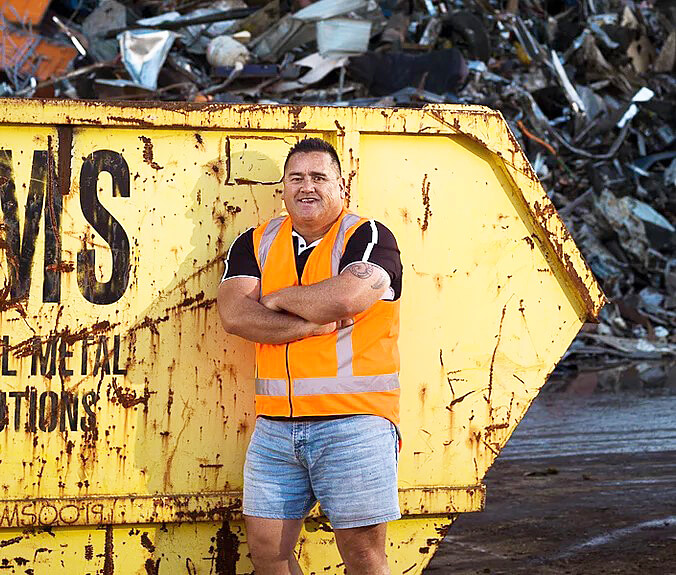
Craig Tuhoro says the proposed plant will be good for the environment and the community.
The company behind the proposed waste to energy plant in Te Awamutu says it is using proven technology and its majority shareholder calls it a bold stride towards environmental restoration
In a statement Global Contracting Solutions says waste minimisation, recycling and resource recovery are nothing new to Craig Tuhoro and his proudly Māori owned and whānau-run company, Global Metal Solutions.
It said Tuhoro wanted to ensure people completely understood the concept and reasoning behind Paewira before making any decisions – “whether they’re for or against the proposal”.
Over a period of 12 years Tuhoro and his team had continuously kept an eye on how they could improve their environmental impact and support the country’s growing landfill problem, the statement said.
His scrap metal processing company based in Hamilton processes up to 100,000 tonnes of scrap metal a year and manages about 60,000 tonnes of cardboard, paper and plastics from the Pacific.
“At GMS, we send approximately 18,000 tonnes of floc (a waste product produced by the scrap metal recycling process) to landfill each year. That’s too much, so I began searching for a solution. That’s how I came across thermal waste conversion – a successfully used process across Europe,” he said.
“I realised how we could apply the technology to mitigate floc disposal and aid our growing waste disposal issues in Aotearoa. It was a wow moment.”
He said the initiative was not merely about waste management, it was a “bold stride towards environmental restoration”.
“Along with diverting material away from landfills, we’re committed to extracting metals already contaminating our soil and remediating old, closed landfills that leach into our waterways. This innovative process will allow us to consume the old waste and recycle the metals, actively healing our land and protecting our waters and whenua for future generations.”
Radio New Zealand reported in July that Tuhoro had secured funding to explore ways to dispose of lithium batteries – which are used in electric cars, cell phones and vapes.
The company says it will create 60 new jobs, beyond the people required to build the factory.
“The project will unlock opportunities to educate future generations about waste minimisation, clean up the nearby Mangapiko Stream, and celebrate the people of Ngāti Apakura and their connection to the land. We also want to teach people about recycling and offer educational tours around the plant,” Tuhoro said.








